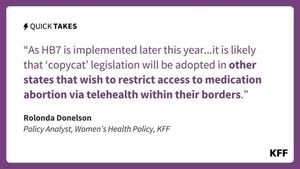On April 9, 2025, the Voivodeship Administrative Court in Warsaw delivered a significant ruling that could reshape the broadcasting landscape in Poland. The court overturned the National Broadcasting Council's (KRRiT) decision from June 21, 2024, which had granted licenses to the right-wing television stations Telewizja Republika and wPolsce24 to broadcast on the MUX-8 digital multiplex. This ruling has sparked intense reactions from various political figures and media stakeholders.
The court found that neither Telewizja Republika nor wPolsce24 demonstrated stable financial backing necessary to cover the costs of a public broadcasting license. Moreover, the court criticized the KRRiT for conducting the licensing process without adhering to proper procedures. Judge Barbara Kołodziejczak-Osetek, who presided over the case, indicated that the proceedings were flawed and ruled that the appellant, Polskie Wolne Media, should be reimbursed for the costs incurred during the legal process.
As the ruling is not yet final, the KRRiT has 30 days to appeal the decision, which could potentially lead the case to the Supreme Administrative Court. This uncertainty keeps the future of both stations in limbo, as they currently continue to broadcast while the legal battles unfold.
In June 2024, KRRiT had awarded a ten-year broadcasting license to both TV Republika and wPolsce24, which was met with controversy. The decision was challenged by Polskie Wolne Media, which argued that the KRRiT's actions violated legal and procedural norms. In the court's view, the financial stability of the applicants was crucial, and the reliance on viewer donations as a funding source was deemed insufficient.
Political reactions to the court's decision have been swift. Jarosław Kaczyński, leader of the ruling Law and Justice party (PiS), condemned the ruling as part of a broader agenda to align Poland more closely with Belarus and Moscow. He described the potential loss of the broadcasting licenses as "completely scandalous" and indicative of a need for radical judicial reform. Kaczyński's comments reflect a deep concern among government officials regarding the implications of the court's ruling on media freedom and the perceived encroachment on the independence of right-wing media outlets.
Karol Nawrocki, a candidate for the presidency and head of the Institute of National Remembrance (IPN), echoed Kaczyński's sentiments, urging the public to recognize what he called a "creeping revolution" against Polish democracy. Nawrocki characterized the court's ruling as an attack on independent media and a sign that freedoms in Poland are being increasingly curtailed. His statements highlight the ongoing tensions between the government and the judiciary, particularly regarding media regulation.
In response to the court's decision, the management and journalists of TV Republika expressed outrage, labeling the ruling a "scandal" and warning of potential consequences for the judges involved. Tomasz Sakiewicz, head of TV Republika, asserted that the judge would be remembered for her decision, suggesting that there would be repercussions for such rulings in the future. The station's staff took to social media to alert viewers about the possibility of losing their broadcasting license, framing the situation as a dire threat to their operations.
The controversy surrounding the licensing of TV Republika and wPolsce24 is not merely a legal issue; it reflects deeper societal divides in Poland. The KRRiT, led by Maciej Świrski, a nominee from the PiS era, has faced criticism for its perceived bias and for making unilateral decisions without proper consultation. Critics argue that the KRRiT's actions have favored certain media outlets while sidelining others, thereby undermining the principles of fairness and equality in media governance.
As the legal proceedings continue, the future of TV Republika and wPolsce24 hangs in the balance. If the KRRiT chooses to appeal the court's ruling, it may lead to a protracted legal battle that could further polarize public opinion on media freedom in Poland. The outcome of this case may set important precedents for how media licenses are granted and regulated in the country.
In summary, the recent court ruling against the KRRiT's licensing decisions has sparked a heated debate about media freedom, judicial independence, and the role of government in regulating the press. As political leaders weigh in on the implications of this ruling, the situation remains fluid, with both sides preparing for what could be a lengthy legal struggle.







